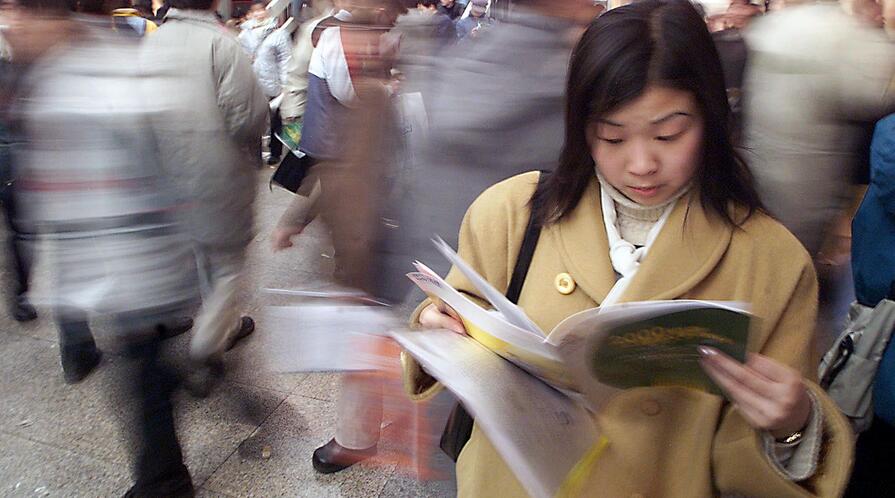The Debate Over the Alleged Higher Education Glut in China
The Debate Over the Alleged Higher Education Glut in China

Andrew Batson quotes REAP's research on the challenges facing China's college graduates. Read the original article here.
Hongbin Li, Prashant Loyalka, Scott Rozelle, and Binzhen Wu recently published a piece in the Journal of Economic Perspectives particularly worth flagging. It touches on one of the hotter social debates in China over the past few years: whether the massive expansion of college education since 1999 has created an over-supply of graduates, or is just the beginning of the necessary transformation of the education system to meet the needs of a modern economy.
New graduates take a long time to find jobs, and their starting salaries are often of similar levels to manual laborers. But they counter with a combination of theoretical reasons not to be too concerned by these phenomena, and a more involved estimation of the financial returns to education:
In contrast to this common perception of too many college students, we believe that college expansion is a great policy achievement of China. If we assume that the demand for human capital is fixed in the short-run, then given the unprecedented increase in the supply of college graduates since 1999, it is not surprising that the return to college for young college graduates would decline for a time. However, in the long run, human capital investment can lead to investment in physical capital and skill-biased technological changes, which ultimately will increase the productivity of and return to human capital. In addition, regions and cities in developed nations that experience arguably exogenous shocks to the supply of human capital ultimately also experience increases in the productivity of skilled labor due to human capital spillovers. There is no obvious reason to expect that China’s case would be different in this respect.
Moreover, college expansion could well be a result of rising demand for human capital. Our analysis of data from China shows that the return to college education for the labor force as a whole has continued to rise despite the fast expansion of China’s colleges. In particular, the return for those with 5–20 years of work experience has risen from around 34 percent in 2000 to 41 percent in 2009. A possible reason is the rising demand for skilled workers driven by the influx of foreign direct investment and expansion of trade starting from the early 1990s. The high return to college education for experienced workers implies a high lifetime return (the 10-year lifespan return to college education for the year 2000 graduate cohort is as high as 42 percent), which explains why urban students flood into colleges in spite of the seemingly low short-term return.
Li and his co-authors point to some worrying evidence that the quality of higher education in China has in fact suffered as the number of students has massively expanded. They argue for decentralizing and deregulating higher education, so that universities are not mainly trying to meet government-set enrollment quotas but are instead competing to deliver a good educational experience.
A more serious problem than any over-supply of college graduates is likely to be the rather shocking under-provision of high school education for rural students, which the JEP article shows is weighing down the overall education level of China’s workforce.
